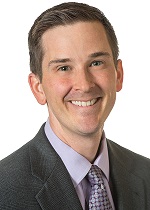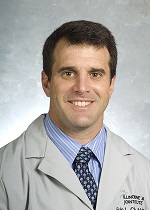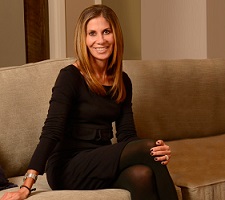The American Medical Association classified obesity as a chronic disease in 2013, but the overall conversation has remained much the same.
"Exercise and diet" is the mantra many patients still hear, but the answer is hardly ever so simple. Just this year, the largest genome wide study, the GIANT research project, found genetic links associated with obesity. Whether the root cause of obesity is genetic, behavioral or some blend of multiple factors, it remains certain that battling weight gain is a complex issue that can rarely be faced alone. Whether because of the weight itself or associated complications, many people turn to the medical field for help. Obese patients may find themselves in a surgeon's office and eventually on the operating table, but how much can surgeons do beyond the OR to help these patients regain and maintain health?
 Jeffrey Fronza, MD, a gastrointestinal and bariatric surgeon at Northwestern Surgical Associates in Chicago, sees patients who struggle with obesity that tend to fall into two different categories. The patients are either candidates for bariatric surgery or facing post-bariatric surgery weight gain. After ruling out any anatomic issues, the latter group's weight gain is generally attributed to behavioral or dietary issues. "For most surgeons, that patient population can slip through the cracks," says Dr. Fronza.
Jeffrey Fronza, MD, a gastrointestinal and bariatric surgeon at Northwestern Surgical Associates in Chicago, sees patients who struggle with obesity that tend to fall into two different categories. The patients are either candidates for bariatric surgery or facing post-bariatric surgery weight gain. After ruling out any anatomic issues, the latter group's weight gain is generally attributed to behavioral or dietary issues. "For most surgeons, that patient population can slip through the cracks," says Dr. Fronza.
Over the past year, Dr. Fronza has developed a relationship with Insight Behavioral Health Centers in Chicago. Insight is a led by a multidisciplinary team focused on tackling issues from obesity and eating disorders to mood and anxiety disorders. Health psychologist Julie Friedman, PhD, leads Insight's Compulsive Overeating Recovery Effort Program. She focuses on post-bariatric behavioral care, obesity management and eating disorders. Patients are able to gain comprehensive insight and care tailored for their situation; care that could rarely be given in the surgeon's office. Dr. Fronza has found the relationship to be a beneficial resource to direct patients toward.
A few years before Dr. Fronza heard of Insight through word-of-mouth, Eric Chehab, MD, an orthopedic surgeon with Illinois Bone & Joint  Institute, had a patient come into his office to discuss symptoms of arthritis, symptoms exacerbated by weight. She lost 150 pounds and maintained her weight. Dr. Chehab was surprised and immediately curious. The patient mentioned Dr. Friedman when asked. "He called me and interviewed me," Says Dr. Friedman. "He wanted to know how she was losing weight and maintaining weight loss."
Institute, had a patient come into his office to discuss symptoms of arthritis, symptoms exacerbated by weight. She lost 150 pounds and maintained her weight. Dr. Chehab was surprised and immediately curious. The patient mentioned Dr. Friedman when asked. "He called me and interviewed me," Says Dr. Friedman. "He wanted to know how she was losing weight and maintaining weight loss."
 Dr. Friedman was in private practice at the time, but when she joined Insight Dr. Chehab continued to refer patients to her. "I typically recommend Insight two to three times a day," he says. "Many patients would benefit from managing and losing weight, but it is incredibly hard to do it on their own."
Dr. Friedman was in private practice at the time, but when she joined Insight Dr. Chehab continued to refer patients to her. "I typically recommend Insight two to three times a day," he says. "Many patients would benefit from managing and losing weight, but it is incredibly hard to do it on their own."
A blanket statement to "lose weight" with no direction or support is often discouraging for patients. They may not return to that physician or any other. "Caloric restriction has been such a failure. The new paradigm is helping patients keep their resting metabolic rate elevated, get enough sleep and eat foods that don't depress the metabolism," says Dr. Chehab. "We need to change the conversation to food choice, sleep and stress management." Surgeons can open the conversation, but providers like Insight offer them an outlet for patients who are not immediate candidates for surgery due to weight or not candidates at all.
Insight not only addresses the physical aspect of obesity, but the emotional and psychological elements as well. "We offer patients an intense program with the emotional and psychological pieces. We educate them on the biology of obesity," says Dr. Friedman. "They feel more validated and supported." IBJI has found that opportunity so beneficial for patients that the practice is working expand its collaboration with Insight. "We are talking about putting our groups on site at IBJI. A staff member there one day per week could do a consult and get patients through the door at Insight," she says. "It would be more seamless to have someone one site."
The relationship between IBJI and Insight, thought not the healthcare industry standard, is not alone. Other physician practices are seeking ways to provide overweight patients with outside support. Kim Bariatric Institute, based in Fort Worth, Texas, has worked with Downsize Fitness in Dallas over the past year. ""We cater to people 50 pounds or more overweight," says Carrie Eastwood, general manager of Downsize Fitness. Kim Bariatric Institute now runs a fitness support group through the gym.
The gym offers exercise regimens for varying levels of physical strength, as well as negotiated rates for post-bariatric surgery patients. "Patients are eagerly showing up after surgery. We have patients anywhere from the six week clearance point to eight years out from surgery," says Colyn Scott, a business project manager with Kim Bariatric Institute. The relationship could expand to as much as one support group per week. "It is our goal once the procedure is done to support the patients beyond surgery," says Ms. Scott. "We want them to have long term success."
Obesity is one of the leading health concerns in the United States. As concepts like accountable care and population health continue to become a focus, relationships like those between IBJI and Insight and Kim Bariatric and Downsize will become essential. Physicians will have to look outside their own four walls to help create a continuum of care.

